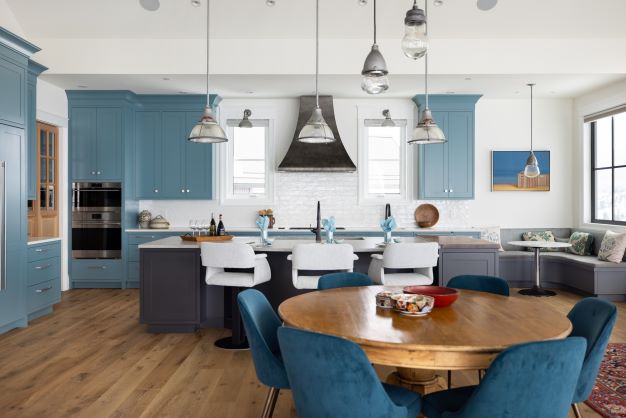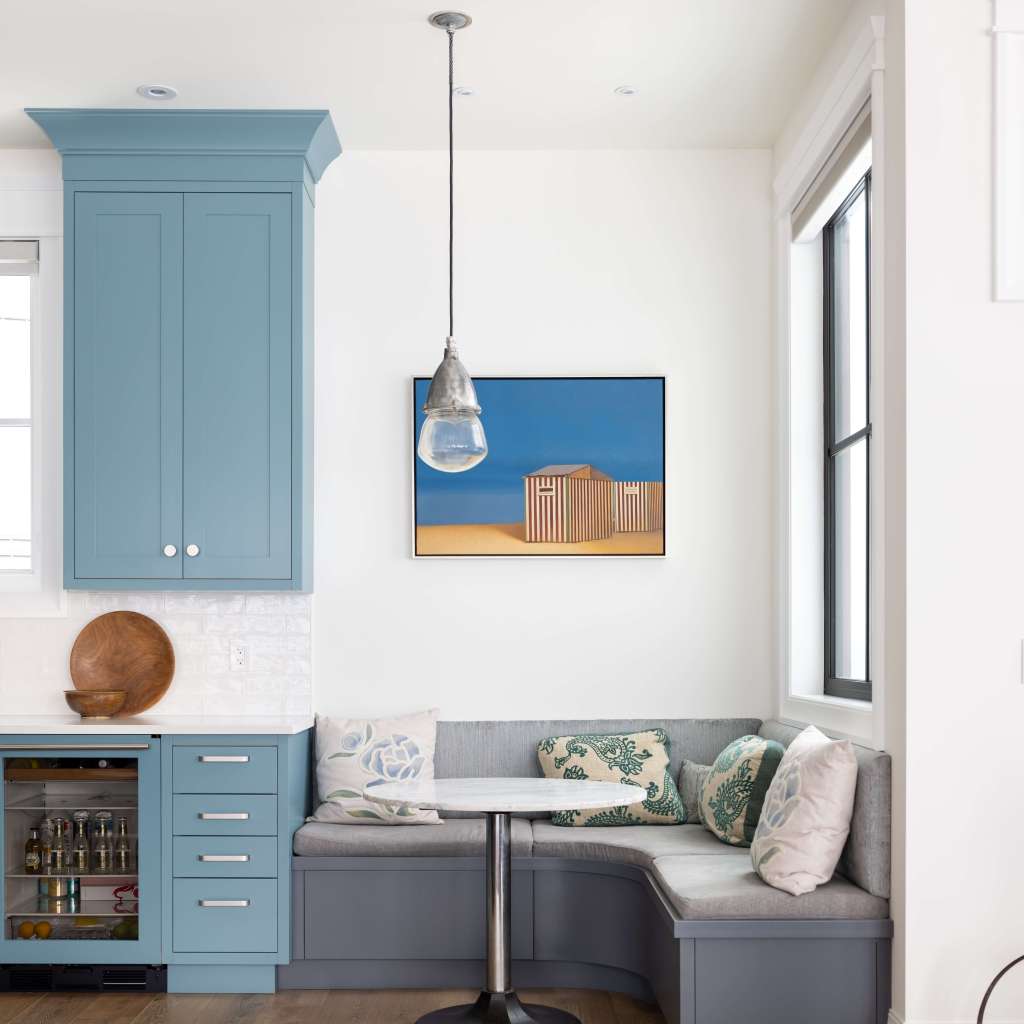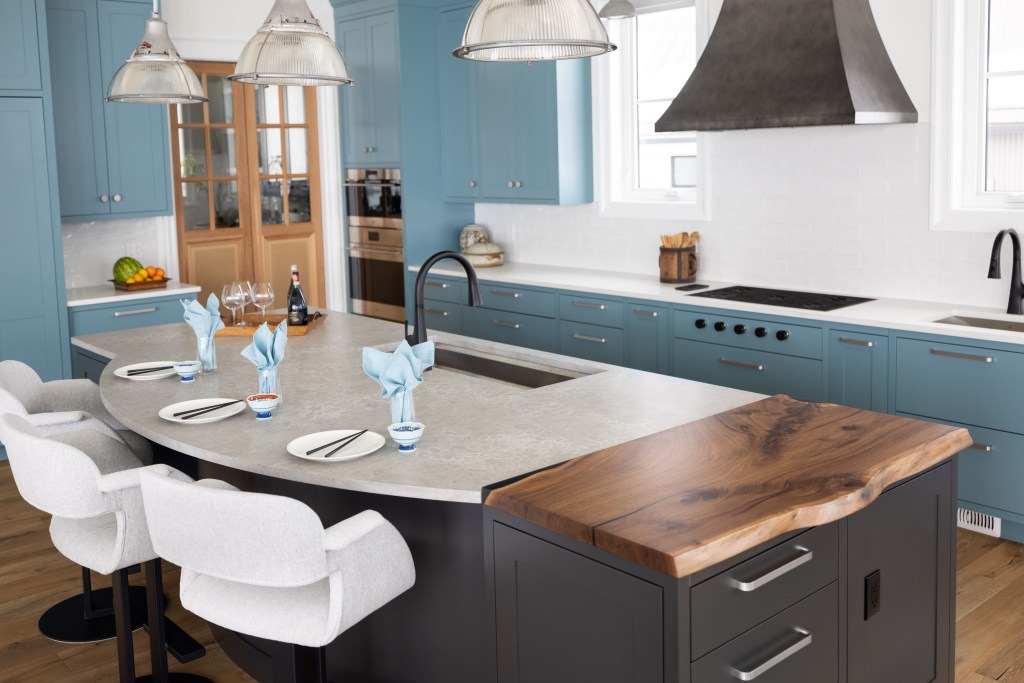Kitchen design has come a long way over the years, evolving from a purely functional space into the heart of the home.
The transformation of kitchens throughout history reflects not only changing aesthetics but also shifting societal values, technology advancements, and culinary preferences.
In this VESTA blog post, we’ll take a journey through time to explore the evolution of kitchen design and how it has profoundly influenced the modern kitchens we know today.
The Early Kitchen: A Hearth-Centered Space

In the earliest human settlements, kitchens were centered around open hearths.
Cooking was done over an open flame, and kitchens were primarily utilitarian spaces with minimal organization or design elements.
Families gathered around the hearth for warmth and sustenance, making it the focal point of the home.
The Industrial Revolution: A Shift Towards Efficiency

The Industrial Revolution brought about significant changes in kitchen design.
Advancements in technology led to the creation of more efficient cooking appliances, such as cast-iron stoves.
This allowed for more precise temperature control and safer cooking practices.
Kitchens began to separate from the main living areas, transitioning into dedicated rooms within the home.
The Mid-20th Century: The Rise of the Fitted Kitchen


The mid-20th century marked a turning point in kitchen design.
The fitted kitchen, characterized by built-in cabinetry, countertops, and appliances, became popular.
Post-World War II prosperity led to an emphasis on convenience and efficiency.
Designers like Frank Lloyd Wright and Margarete Schütte-Lihotzky introduced innovative ideas for streamlining kitchen workflows.
The 21st Century: An Era of Open Concept & Technology Integration





In recent decades, we’ve witnessed a radical transformation in kitchen design.
Modern kitchens prioritize open-concept layouts, blurring the lines between cooking, dining, and living spaces.
This trend encourages social interaction and inclusivity, making the kitchen the hub of family life.
Technology has also become an integral part of kitchen design.
Smart appliances, touch-sensitive faucets, and integrated lighting systems enhance functionality and convenience.
Sustainable materials and energy-efficient appliances reflect a growing awareness of environmental concerns.
Influences on Modern Kitchen Design
Several key factors have contributed to the shaping of modern kitchen design:
- Lifestyle Changes: As our lifestyles have become busier, the kitchen has adapted to accommodate varied cooking styles, from gourmet to fast and easy.
- Cultural Influences: Globalization has introduced diverse culinary traditions, influencing kitchen layouts and the integration of specialized cooking equipment.
- Sustainability: With a growing concern for the environment, modern kitchens incorporate energy-efficient appliances and sustainable materials.
- Technology: The digital age has ushered in the era of smart kitchens, with connectivity, automation, and touchless features at the forefront.






The evolution of kitchen design from humble hearth-centered spaces to modern, open-concept culinary hubs reflects the ever-changing dynamics of our lives.
Through each historical era, kitchens have adapted to technological advancements, cultural shifts, and changing family dynamics.
Today’s kitchens not only offer functionality but also serve as a reflection of personal style and a hub for social interaction.
As kitchen designers, understanding this rich history allows us to create spaces that seamlessly blend tradition and innovation, making kitchens more than just places to cook but also spaces to gather, create, and connect.
The kitchen has truly become the heart of the modern home, shaped by the past and ready to embrace the future.
To keep up on all things kitchen you can receive the VESTA Blog in your inbox by subscribing here:
Also, the design industry is always looking for creatives, so if you wish to explore career opportunities in the field of design, check out jooble.org for part time Interior Design positions.

Jan Rutgers has been designing kitchens and products for over 25 years and is a recipient of Kitchen & Bath Design News’ Top Innovators in 2020 for the Kitchen & Bath Industry. She has designed more than 1000 kitchens learning valuable skills with each one! Her experience in Kitchen Design, Millwork Manufacturing and Product Development has led her to create VESTABUL SCHOOL OF DESIGN where she educates and mentors people passionate about the Kitchen Design Industry.





